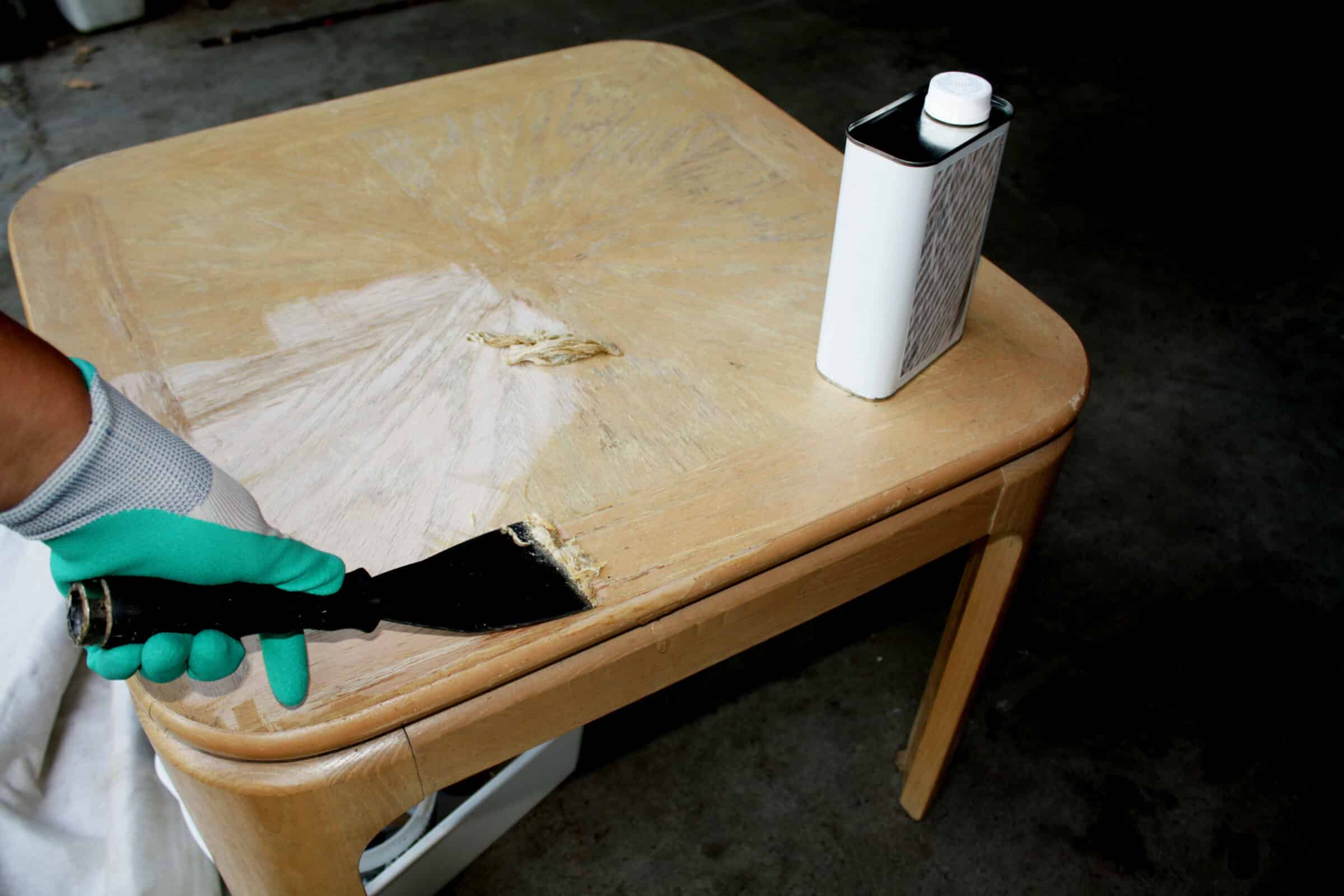
Paint Stripper Safety Tips from Denver Professional Painters
Removing paint can be a real challenge sometimes. This is when paint strippers come in handy. Whether you want to remove varnish from furniture or strip the paint off of baseboards, you will most likely need to use a paint stripper. But are paint strippers harmful?
Anytime you’re using chemicals to do the job, it can pose some risks if you don’t take the necessary precautions. Keep reading to learn about our paint stripper safety tips.
Understanding Paint Strippers and the Importance of Safety
Paint strippers are chemical products designed to remove paint, varnish, and other coatings from surfaces. They work by breaking down the bond between the paint and the underlying material, making it easier to scrape or peel off.
What are Paint Strippers Used For?
Paint strippers are used for a variety of purposes, primarily to remove unwanted paint, varnish, or other coatings from surfaces. Here’s a breakdown of some common applications:
- Furniture Restoration: When restoring old furniture, paint strippers can be a valuable tool for removing layers of paint or varnish that obscure the original wood grain. This allows for refinishing or staining the furniture to its former glory.
- Repainting Walls or Trim: If you’re planning to repaint walls or trim but the existing paint is in good condition, a paint stripper can help remove a layer of paint to create a better bonding surface for the new paint. This can be particularly useful for removing glossy paint finishes that might otherwise require sanding.
- Removing Varnish from Wood Floors: Similar to furniture restoration, paint strippers can be used to remove layers of varnish from wood floors. This can be a preparatory step before refinishing or staining the floor to achieve the desired look.
- Removing Lead-Based Paint (Caution!): In older homes, lead-based paint may be present. It’s important to note that using a paint stripper for lead paint removal is not recommended due to the risk of lead dust exposure. If you suspect lead-based paint, professional abatement services are necessary to ensure safety.

So, Are Paint Strippers Harmful?
The active ingredients in a paint stripper may be harmful to the eyes, skin, respiratory tract, nervous system, and internal organs. Chemical paint strippers became popular years ago to remove lead-based paint. Different paint strippers have varying chemicals in them, but most of them include some amount of methylene chloride and other abrasive materials which cause paint to peel off and can also cause these issues:
Skin Damage
Direct contact with paint stripper can cause dermatitis, a skin inflammation. Paint strippers dissolve the skin’s natural protective oil barrier, leaving it vulnerable to irritation, redness, and cracking.
Respiratory Damage
Inhaling paint stripper fumes can irritate the nose and throat membranes. Severe exposure can damage lung tissue, leading to coughing, difficulty breathing, and even fluid buildup in the lungs.
Brain and Nervous System Damage
Paint stripper solvents can be absorbed through the skin or inhaled, affecting the central nervous system. Symptoms like headaches, dizziness, fatigue, and loss of coordination can occur. Chronic exposure may lead to permanent brain damage or seizures.
Eye Damage
Paint stripper splashes or fumes can severely irritate the eyes, potentially causing burning, redness, and temporary vision problems. In extreme cases, permanent eye damage can occur.
Cancer Risk
Some paint strippers contain chemicals classified as potential carcinogens. Long-term exposure to these chemicals may increase the risk of developing certain cancers.
Fire Hazard
Many paint strippers are highly flammable due to the presence of volatile organic compounds (VOCs). It’s crucial to keep them away from heat sources and open flames to prevent fires.
7 Paint Stripper Safety Tips
- Work in a Well-Ventilated Area: Ensure proper airflow by opening windows and doors or using fans to create an exhaust. This helps disperse paint stripper fumes and prevent inhalation.
- Wear Personal Protective Equipment (PPE):
- Safety Glasses or Goggles: Protect your eyes from splashes or fumes that can cause irritation or damage.
- Chemical-Resistant Gloves: Wear gloves specifically designed to resist paint stripper chemicals. This prevents skin contact and potential dermatitis.
- Respirator: When working indoors or in confined spaces, a respirator with appropriate organic vapor (OV) cartridges is highly recommended to filter out harmful fumes.
- Minimize Skin Contact: Wear long sleeves and pants and avoid wearing clothes you wouldn’t mind getting paint stripper on. If contact occurs, immediately flush the affected area with clean water for at least 15 minutes and remove contaminated clothing.
- Use Drop Cloths and Covers: Protect surrounding surfaces and prevent spills with drop cloths or plastic sheeting.
- Choose a Safe Paint Stripper: Whenever possible, look for paint strippers labeled “low-VOC” or containing safer alternative solvents. These can minimize health and fire hazards.
- Consider Hiring a Professional Painting Service:
For large projects, lead-based paint removal, or if you’re uncomfortable using paint strippers yourself, consider hiring a professional painting service. Professionals have the experience, knowledge, and equipment to handle paint removal safely and efficiently. - Dispose of Paint Stripper and Rags Properly: Never pour leftover paint stripper down drains or dispose of rags with regular trash. Check with your local waste disposal authority for proper hazardous waste disposal procedures.
By following these essential safety tips, you can significantly reduce the risks associated with using paint strippers. Remember, safety should always be the top priority when undertaking any DIY project involving harsh chemicals.
Paint Stripper Safety: The Importance of Caution
Paint strippers can be a valuable tool for removing unwanted paint or varnish, but it’s crucial to prioritize safety throughout the process. By understanding the potential health hazards associated with paint strippers, such as skin irritation, respiratory damage, and even nervous system effects, you can take the necessary precautions to protect yourself.
Thinking about tackling a paint-stripping project but have questions or concerns? Contact Paint Denver today! Our experienced professionals can help you determine the safest and most effective approach for your specific needs. We offer free consultations and estimates, so don’t hesitate to reach out!
